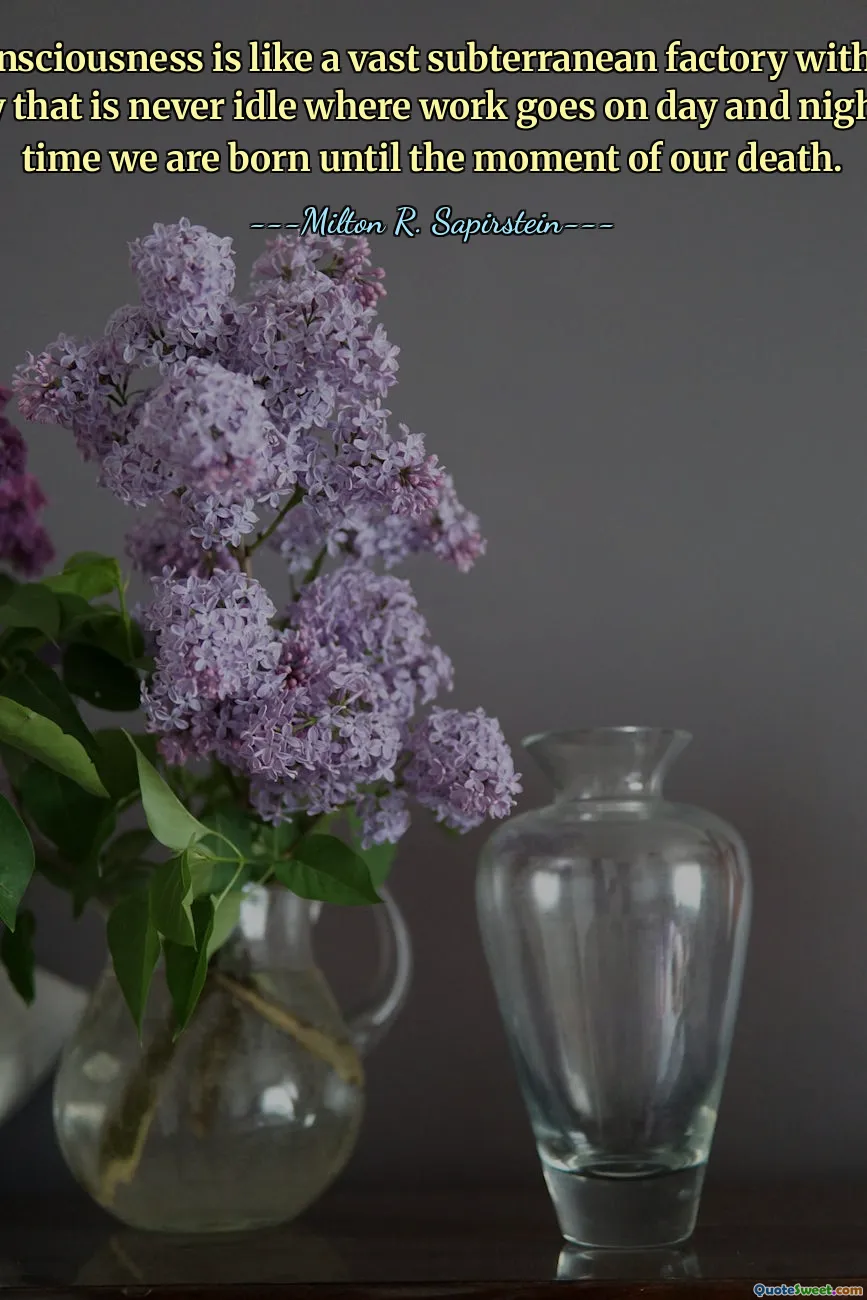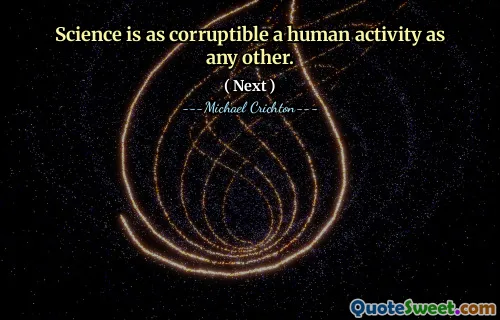
Our unconsciousness is like a vast subterranean factory with intricate machinery that is never idle where work goes on day and night from the time we are born until the moment of our death.
The analogy presented in this quote offers a compelling visualization of the unconscious mind as an expansive, continuous process similar to a subterranean factory. This factory is characterized by complex machinery working tirelessly around the clock, symbolizing the mind’s relentless activity that persists from birth until death. It emphasizes the idea that much of our mental processes—automatic thoughts, deeply ingrained habits, subconscious beliefs, and instincts—operate beyond our conscious awareness, shaping our perceptions, decisions, and behavior without our active interference.
Understanding the unconscious as an ongoing, intricate manufacturing unit highlights how much of our identity and experience is sculpted beneath the surface of conscious awareness. Just as a factory produces goods continuously, our subconscious generates feelings, reactions, and insights that influence our actions and responses in everyday life. This perspective encourages us to consider the importance of self-awareness and introspection, realizing that by examining the machinery within, we can better understand the roots of our behaviors and perhaps steer some of its processes.
Furthermore, the metaphor suggests the magnitude and complexity of the subconscious, underscoring that it is a vital, persistent force driving much of our mental life. It reminds us that growth and change often require delving into these subterranean operations—recognizing our unconscious patterns and machinery. The ongoing activity implies that self-discovery and change are continuous journeys rather than finite tasks. Overall, this quote eloquently underscores the silent, ceaseless work happening within us, shaping our existence in profound ways that we might only begin to comprehend when we turn our attention inward.







